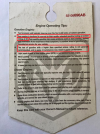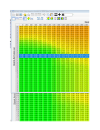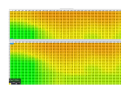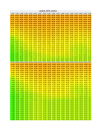I find their tests are fairly accurate for the specific conditions they rate and they apply to my summer conditions. But it may not be the same conditions that you drive under.
I've compared all of my vehicles with highway runs and city driving and I'm able to match the EPA estimates without much trouble. For instance, I did a pure highway run to prove that it's possible to get over 21mpg cruising on the highway with 3.92 gears, and that exceeds my window sticker which is 21 on the highway (personal best was 23.6 but average is 21-22 in the summer). So RAM didn't lie or fudge the numbers. Window sticker says 15 in the city, and I get 17 in my area with few stops and stretches of 30-40mph zones. In Los Angeles traffic I'm sure I'd get 1-2mpg.

I got the 3.92's specifically for frequent towing. While the axle ratio is shorter, it only looses about 1mpg on the highway as long as you keep it under 2,000rpm or about 68mph. If I run at 75+mph mileage drops like a stone due to VVT kicking in and I would get about 18% less mileage or 3-4mpg less. Up here the posted limit is 62mph so cruising at 65-68 works fine and I get decent mileage consistently.















